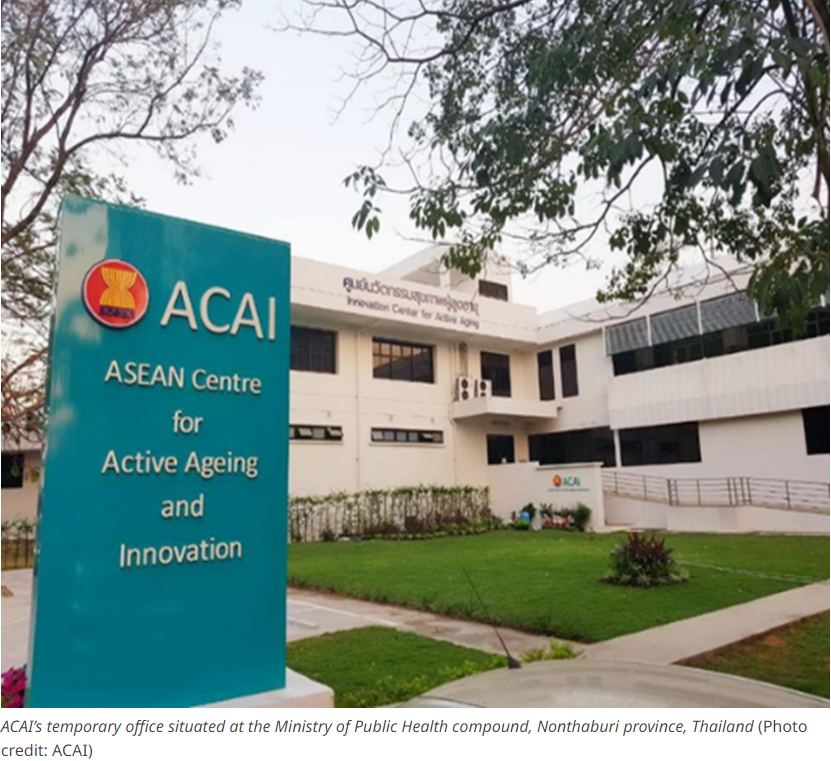World Health Organization
From Mandate to Implementation: Operationalizing National Multisectoral Governance for NCDs in Kuwait
Multisectoral Action
17 Dec 2025
World Health Organization | 09 Feb 2023
Thailand is among the fastest ageing countries in the world. Of its 67 million population, 12 million Thais, are elderly according to the latest national statistics report. Since 2005, the country has been classified as an ‘aged society’ as people aged 60 years and above accounted for 10% of the population. It is expected that the country’s elderly population will increase to 28% and that Thailand will become a ‘super-aged society’ by the next decade.
With advances in the health care system, the number and proportion of people aged 60 years and older are on the rise both in Thailand and globally. In 2019, more than one billion of the world’s population was above the age of 60. This is expected to increase to 1.4 billion by 2030 and 2.1 billion by 2050.
While this demographic shift reflects the advancements in social and economic development and health, it also poses new challenges. Recognizing such demographic shifts and challenges, policymakers and related stakeholders in the South-East Asia Region have been working over the years on reforming policies and initiatives to tackle the challenges facing the well-being of older persons.
One of the landmark initiatives by the Association of South-East Asian Nations (ASEAN), with the leadership of Thailand, was the establishment of the ASEAN Centre for Active Ageing and Innovation (ACAI) in 2018 which was launched a year later during the 35th ASEAN Summit.
The establishment of ACAI is regarded as a key achievement in line with the theme of “Advancing Partnership for Sustainability” during Thailand’s ASEAN chairmanship in 2018.
ACAI aims to drive the promotion of healthy ageing in the Region by using a comprehensive approach and regional collaboration. The aim is to enhance the lifelong quality of the ageing population and pave the way for Thailand and ASEAN counterparts towards an aged society.
One of the core purposes of ACAI is to serve as a resource center conducting research and studies on driving evidenced-based active ageing strategies, policies and innovation. ACAI also facilitates collaboration among ASEAN member nations through capacity development programmes and monitoring the progress of active ageing based on the ASEAN +3 Statement on Active Ageing, the UN Decade of Healthy Ageing 2021-2030 and the Sustainable Development Goals.
Since commencing its official operations in late May 2020, ACAI held a series of governing board and consultative meetings to review ASEAN national policies on ageing and the availability of post-COVID-19 programmes and initiatives for the elderly. International conferences and workshops were also held to galvanize action on active ageing and innovations in 2021. Outcomes included a list of key working priorities for ACAI. Board members also agreed to develop a regional action plan for advancing partnerships with stakeholders.
Capacity-building training as well as knowledge and experience-sharing sessions will be further arranged for the current country coordinators, enabling them to get exposed to actual case studies and become aware of the urgent need for collective action to drive healthy ageing in all aspects.
“We need to get ready for the change in society with older people who have their own needs. Leadership, partnership, innovations among ASEAN countries, and the support by ACAI will help with the realization of a people-centric ASEAN community,” said Dr. Jos Vandelaer, WHO Representative to Thailand who added that the establishment of ACAI emphasizes ASEAN’s commitment to the ageing population.
WHO recommends Member States to invest in data to monitor healthy ageing across the life cycle, and to engage senior people at all stages of life. Several tools and handbooks relating to ageing and intergeneration cohesion have also been developed by WHO which can be used as a guiding principle for ACAI’s future directions, such as the Integrated Care for Older People (ICOPE).
“WHO will continue supporting Member States to achieve the vision of ‘Healthy Ageing’ and support Thailand in its crucial role as a knowledge hub on active ageing and innovation,” said Dr. Vandelaer.
The COVID-19 pandemic has affected the elderly in all aspects -from health, economy, and social status. Dr. Sakarn Bunnag, ACAI Interim Executive Director, said the intergovernmental body will focus on restoring and developing further the potential of older persons in the recovery period from COVID-19, a key concern not only in ASEAN but also the world over.
“Everyone is affected by this pandemic, but at the same time, it allowed us to develop new service delivery mechanisms such as telemedicine to serve everyone. This can be applied to ageing as well,” said Dr Bunnag.

In the first five years of ACAI, the Thai government will provide seed funding to support ACAI’s work and activities and ACAI will receive voluntary financial support from 10 ASEAN member countries later on. As part of the five-year strategic plan, a consultative meeting for setting regional priority areas of action for ACAI has been organized to find common problems and needs for the development of ASEAN's ageing society.
“Although the post-COVID-19 period exposed existing gaps in policies, systems and services for older adults, it has highlighted opportunities to build back better resilient systems and reconfigure how societies are structured. ACAI with its mandate, backed by the commitment and experience of Member States can play a leading role in creating an age-friendly society and leave no older persons behind,” said Dr Bunnag.